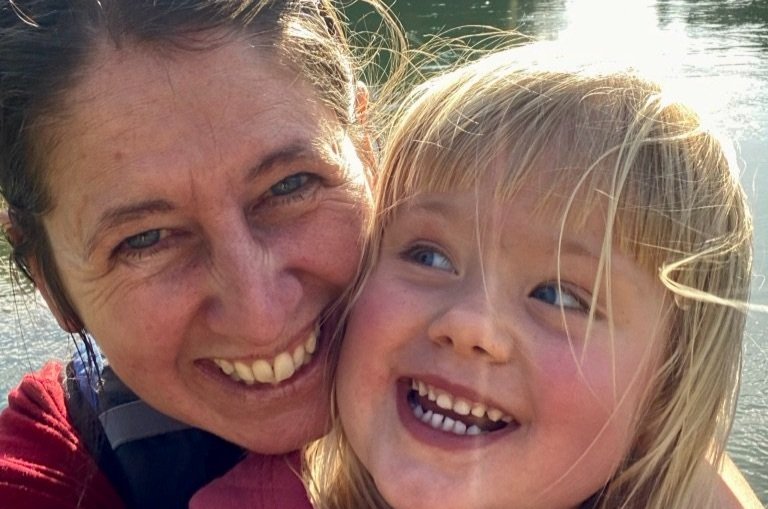
Photograph by permission of friends & whānau
We have mused over this section and it has led us to change the title from Catch the Cradle to Catching the Cradle and All. The word “catching” implies someone or something involved in an action, someone or something doing. We include “all” deliberately. As Winnicott pointed out in his peculiar way of speaking, “There is no such thing as a baby…” To say “a baby” implies a baby all by herself/himself and such a thing cannot be. Winnicott went on the say, “There is always a baby and someone else.” The “all” encompasses those who care for and surround the baby, including the practitioners who have become involved over time. When the cradle falls, they all fall.

“Today you are you, that is truer than true. There is no one alive who is you-er than you.”
(Dr Seuss, 1959)
Photograph by permission of friends & whānau
We recognise there are 168 hours in a week and each hour has the capacity to be one which calms the wind, if all those who come into contact with a wobbly cradle are supported. We have received calls for support from extended whānau (grandparents, aunties, uncles, cousins), best friends, pre-school teachers, public health nurses and GPs, to name a few. These are people who are positioned to calm the winds that could cause the cradle to rock out of control. However, often what these people contribute is overlooked, as is what they need to remain calm while catching the cradle. We offer one on one consultation and presentations/workshops to extended whānau and early childhood practitioners (including midwives, NICU nurses, Plunket nurses, paediatricians and GPs) to facilitate understanding and encourage a reflective approach to the complex task of Catching the Cradle and All.

The people we serve are experts by experience
Photograph by permission of friends & whānau